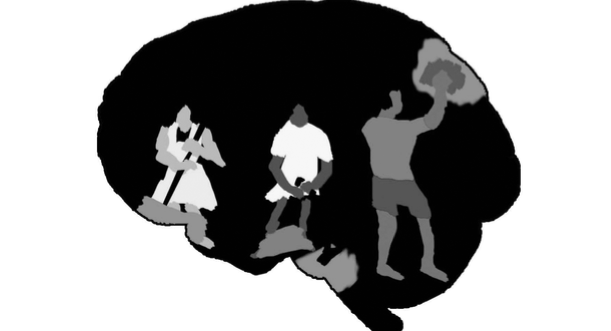
Our society has come to accept the notion that “it’s okay to not be okay”.
We can agree that mental health is important and struggling with mental illness is nothing to be ashamed of.
For many people, dealing with their struggles means taking medication.
Unfortunately, there is a popular misconception that medication is the most important part of dealing with mental illness.
The truth is medication is a piece of the recovery process, not the entirety.
This is not to say medication is evil, nor that people do not need it.
Medication can be a useful tool in treating mental illness when used properly.
I can personally attest to the benefits of antidepressants and anti-anxiety drugs, having taken a laundry list of them myself.
But I too am guilty of believing medication was the only thing that would help me.
At 16, I was diagnosed with depression and anxiety. To deal with these issues, I set out in search of a “cure”.
After a particularly bad day I went to my family doctor, laid out my problems, and came home with a prescription that I was convinced would make all my troubles disappear.
I held this mindset for a long time, working my way through a litany of medications. When one drug didn’t satisfy my expectations,
I would return to the doctor, continually seeking a pharmaceutical fix. I am not alone in this approach to mental illness.
We are socialized to treat physical illness with medications to cure them, so naturally our approach to mental illness is the same.
However, mental illness cannot be seen from an “A cures B” perspective.
This went on for a couple years, coming to a head this past January.
By that point I had gone through numerous medications, and because I was feeling better, I thought I had found my “cure”.
Evidently, I had not. The medication I was on stopped working and my symptoms returned.
After a few major breakdowns I ended up in a psychiatrist’s office, demanding that she “give me something to fix me.”
Typically, this would have been the point where I received a higher dosage, or an entirely new medication.
This psychiatrist was different however.
She refused to change my medication, instead urging me to listen to my therapist, who had been working with me on developing healthy habits in my life.
Without saying it outright, this psychiatrist made it clear to me that medication is not the sole fix for mental illness.
At the time I found this idea troubling, but now I wholeheartedly agree with her.
This idea of healthy habits was not a new concept in my life.
It had been suggested countless times during my mental health journey.
From my mother, various counsellors, mental health initiatives in school, and all over the internet.
The problem was I did not apply the advice I’d been given, remaining fixated on finding a “cure”.
This is where people often struggle, because applying this advice means changing their entire approach to their issues.
Changing one’s approach may be difficult, but the development of healthy habits is key to recovery.
Following this meeting I began to seriously consider what my daily life looked like. I had been able to recognize many of my problem behaviours and patterns in the past – sleeping too much or too little, living a sedentary life, using alcohol and marijuana to cope – except this time I was prepared to do something about them. I had come to terms with the fact that if I wanted to get better, I had to put in the work.
This meant adjusting my daily routine. I began following a strict sleeping schedule, going to bed and waking up around the same time every day, getting eight hours of sleep each night.
As well, I started paying more attention to what I eat.
I also implemented new behaviours in my life: establishing an exercise regimen and getting in the habit of daily meditation.
I did not make all these changes overnight and changing my habits was not easy.
It required a great deal of dedication and persistence, which people frequently overlook.
In order to recover you must be willing to commit to a routine of healthy habits, regardless of how tough or mundane they are.
As I sit here today, I can positively say I am recovering from mental illness.
I am not “fixed” or “cured”, but I am improving.
Much of this can be attributed to the fact that I now recognize the importance of actively working toward recovery.
I am devoted to my healthy habits, having seen first hand how difficult recovery is when you solely rely upon medication.
My story is not unique or a “one off”. It serves as a testament to the fact that taking positive action to improve your mental health works.
It is why developing healthy habits appears so frequently in the discussion of mental health and wellness, and why ignoring this piece of the recovery process in favour of focusing on medication is detrimental.
Medication cannot replace the importance of the time, effort, and positive self-care.
I challenge you to consider your own habits. What are you currently doing, or not doing, that is preventing your growth?
What can you do to address these negative behaviours?
Better yet, are you willing to put in the work?






























